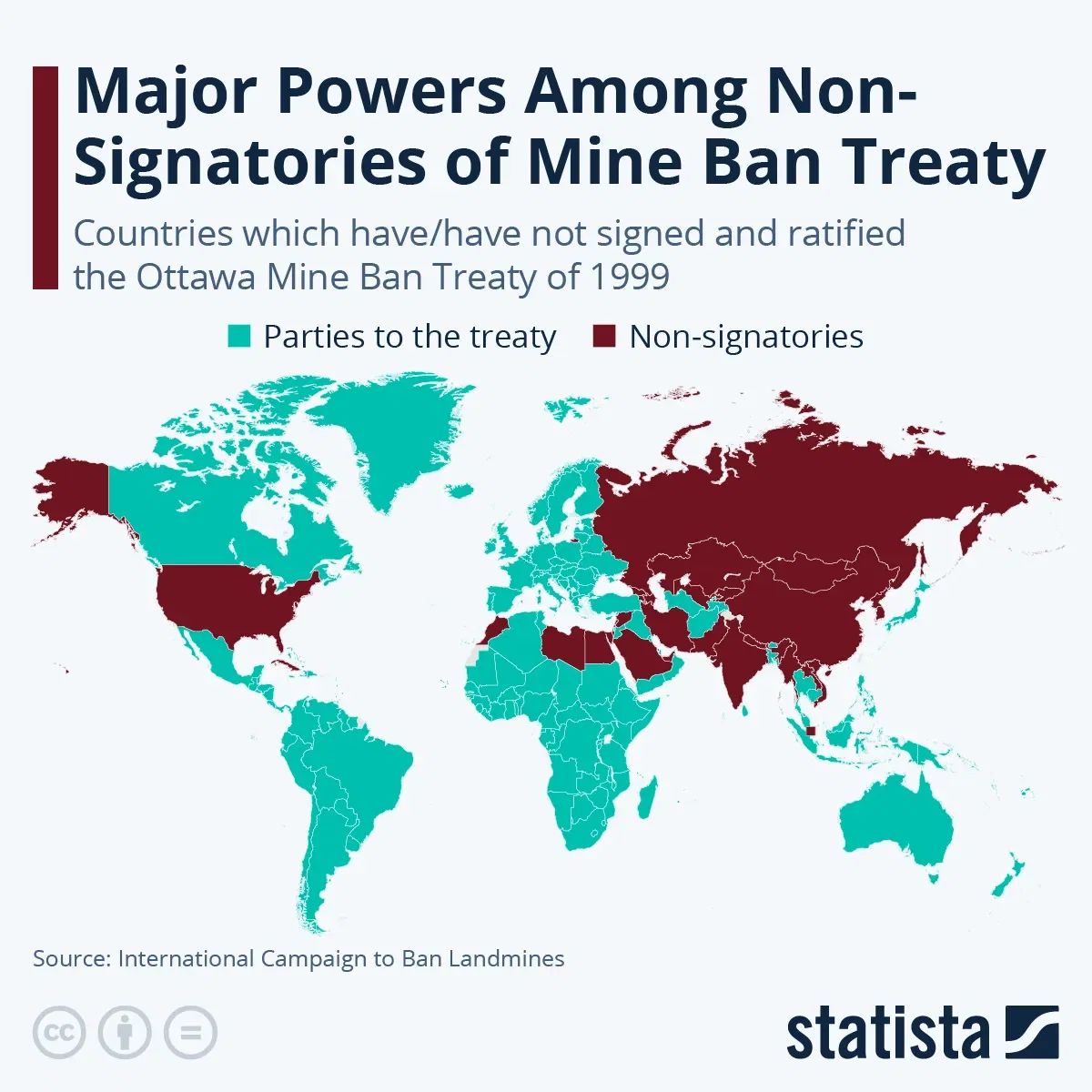Where Data Tells the Story
© Voronoi 2025. All rights reserved.

25 years ago today, the Ottawa Mine Ban Treaty came into effect. While 164 countries have signed and ratified the agreement since then, major powers like the United States, China and India are among the 34 non-signatories. Asia is actually the continent with the fewest signatories, including more countries which are home to major militaries, including South Korea, North Korea, Pakistan, Iran and Saudi Arabia.
Vietnam and Laos, which have had major mine issues in the past, have also not signed, citing different reasons from maintaining mine fields at their borders to being too busy clearing unexploded ordinance instead of mines and continuing mine training in the military. In Africa, where landmines have also been devastating in the past, all Subsaharan countries have signed.
Current U.S. President Joe Biden has worked on mine policy with the goal of ultimately joining the treaty. His administration in the process confirmed the use of antipersonnel mines in Iraq and Kuwait during the 1991 Gulf War and the use of a single antipersonnel mine in Afghanistan in 2002. Despite being the first country to call for the elimination of mines, the U.S. has not signed the agreement because of its pledged support for South Korea which includes the potential use of anti-personnel mines. Neither South nor North Korea have signed the treaty.
China also maintains some border minefields, but more importantly, is a major producer and stockpiler of landmines. It has however reduced inventories and said it stopped the export of mines which do not easily self-destroy after use. Yet, China has recently exported anti-vehicle mines - some were used in the Libyan and Syrian conflicts - and it is unclear if it has stopped producing rudimentary anti-personnel mines. India continues to produce, stockpile and use landmines - for example in Kashmir in 2022 and 2023 - but says it has no permanent minefields.